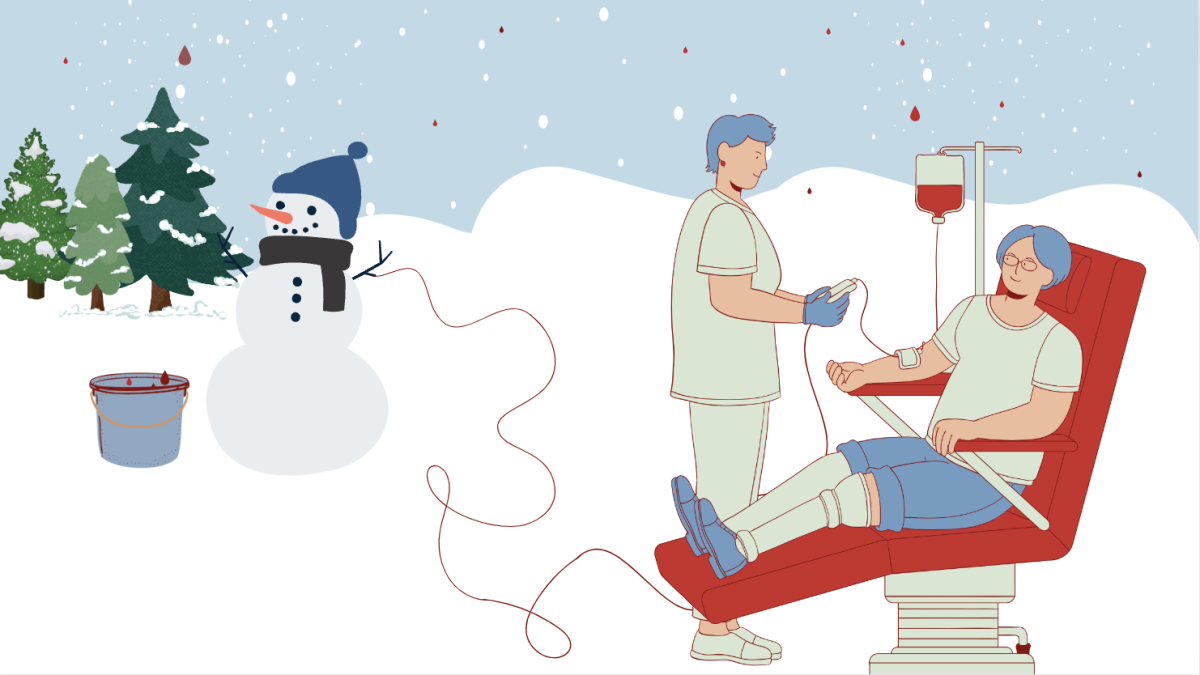At Edison High School, the spirit of giving is always present. Throughout the seasons, clubs and extracurricular activities work to help better both the school and the Edison community. One such implementation is the annual blood drive held by UNICEF, a humanitarian organization that aims to sponsor and help refugees in underdeveloped countries.
The student chapter of UNICEF works with a company called Vitalant, a blood bank that relieves patients all over the United States. For Edison High, blood donations are usually directed to local hospitals and institutions. The drive is always held in the spring—never the winter.“It’s our way of giving back,” said Ms. Erin Panepinto, World Language teacher and advisor of UNICEF. Panepinto shares the reason behind not holding the blood drive during the winter: logistics, specifically the timing overlap of basketball practice.
Blood drives, a vital component of medical aid, experience an all-time low in the winter months, even though blood shortages are the most prominent following the holiday season.
Not only is the holiday season “the season of giving,” it is also the season of stuffy noses and the flu, making conditions unsanitary to donate blood. Additionally, the level of platelets, a component of the bloodstream that helps to stop bleeding, is significantly lower in the winter; and inclement weather can be responsible for the discontinuation of blood drives. Cumulatively, the effects of harsh winters are displayed in a rapid, nationwide blood shortage that usually reaches its height in January.
Both abroad and domestically, the holidays place pressure on hospitals and clinics. Even without ongoing violence, blood supplies following the holiday season are insufficient to treat patients all around the country. After all, according to the American Red Cross, “blood is needed every two seconds across the U.S. to help patients battling injury and illnesses.”
According to its website, the Red Cross must collect around 29,000 units of red blood cells daily to support U.S. citizens in need. This supply is continuously affected by local circumstances as well as major domestic and foreign events. A single car accident victim, for example, may use up to 100 units of blood. The Red Cross also contributes internationally; for example, the Israel-Hamas war and its ever-growing number of casualties has further exacerbated the national emergency shortage. This current insufficiency marks the lowest levels of blood donations in over two decades.
We often feel helpless in the face of car accidents or the perpetual suffering of disputants on the other side of the world. But, we can help by donating blood through EHS’ own UNICEF blood drive on April 30, 2024, and with these local organizations:


















































































